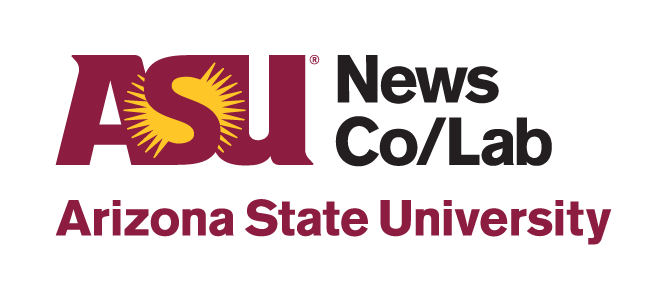Why community engagement is at the heart of this reporter’s job

Editor’s note: Samantha Max is a community-driven health reporter for The Telegraph in Macon, Georgia. As part of our partnership with The Telegraph, the News Co/Lab co-sponsors the Report for America journalist.
People always ask me where I get my story ideas.
The answer: It’s complicated.
Sometimes they come from press releases and occasionally they’re assigned by an editor, but some of my favorite stories come from my readers.
As a community reporter, my goal is to provide local residents with the information they can’t get anywhere else. In the age of Twitter, Google and 24-hour cable news, I strive to fill the crucial, yet often-overlooked gap in coverage of issues that affect the people who live right here in central Georgia.

Samantha Max, The Telegraph
- I moved to Macon to start working as a health reporter at The Telegraph six months ago. And, ever since, I’ve been playing catch up, trying to meet as many locals as possible and find out what they want to see when they leaf through (or click through) their newspaper each day.
As a Report for America corps member supported by the News Co/Lab, community engagement is at the heart of everything I do. I strive to build trust with local residents and provide every opportunity for input.
I get story ideas when I chat with neighbors in my apartment building and as I weave through the aisles of the supermarket. When I’m out in the field reporting or interviewing sources on the phone, I always ask for tips.
But the greatest community-sourcing tool, I’ve found, is the Internet. A biography at the bottom of each of my stories lists my social media information, and readers frequently follow me on Twitter or friend me on Facebook. When readers send me a message about a story I’ve written, I ask them what issues they think I should look into, and, more often than not, they have insights into corners of the community where I would have never even thought to look.
Several of my stories have come from Facebook and Twitter message threads, like an in-depth look into the mental health of children in foster care and a feature about a free volunteer clinic for Macon’s uninsured. Other article ideas have come from the dozens of emails I’ve received from readers, many of whom have become reliable sources I get coffee with or call up for background information.
About a quarter of my stories have come from readers, including five of my top 15 most-read articles. Here are a couple examples: She nearly died during childbirth. 10 months later she’s fighting for her life and She thought her ER charges had been waived. Then she got a $1,200 bill in the mail.
The key, I’ve found, is to break down the barrier between “the reporter” and “the public.” The truth is, we’re all members of this community we call home, and we all deserve an opportunity to speak up when we have something to say and listen when we have something to learn.
As a journalist, I strive to provide readers with every opportunity to be part of the storytelling process. I’ve created a Facebook group for my beat, where I invite my readers, sources, co-workers and friends to engage in conversation, provide tips, and share their own visions for a healthy community.
When a concerned reader commented on a story I wrote about the funding of our local nonprofit hospital, I spent a week investigating her questions, and sat down with her for a Facebook Live conversation. After I handed her a stack of documents and told her what I’d found, she hugged me and thanked me for taking the time to explain my reporting process to her. No one had ever done that before.
Local reporters have a unique power. We uncover injustice, hold leaders accountable and empower citizens to make informed decisions. But we also walk the same streets, shop at the same grocery stores and share the same passion to make our community the best it can be.
Teachers, police officers, government officials and neighbors all play a crucial role in the wellbeing of our community. But without journalists, who would know?
